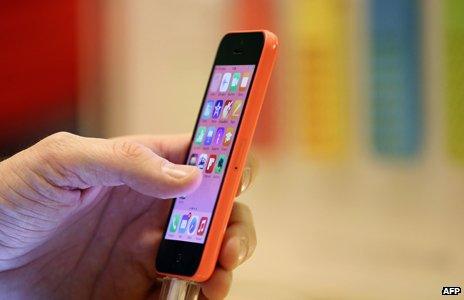Chat apps and the future of news
- Published
- comments

Will chat apps change the way people get their news and share the news?
That's what I'll be spending the next few weeks trying to find out as part of a project working with the BBC's Global News and World Service digital team.
By chat apps, I'm talking about the instant messenger services that are usually free to use if you have a mobile data plan on your phone. One of the big technology stories of 2013 was the rise in use of services like these, so chances are that you already know of WhatsApp, Blackberry Messenger, WeChat, Line, KakaoTalk or one of the other messaging apps that are rapidly increasing in usage. Some have already had an impact on how big news stories have been covered.
During the summer riots of 2011, Blackberry Messenger became an unexpected source of information for the UGC hub, a team that sources and verifies content from audience contributions to BBC News and through searching the wider web. Instant updates (mostly from young people) were flashing rapidly across the platform, describing where in London the worst trouble was, some encouraging looting and rioting and others showing the first pictures and videos emerging from the scene.
Will such instances of stories being broken first on these services increase? And will people turn more to these platforms to share news, pictures and videos in the future?
There are already some suggestions that that's exactly what the younger generation are doing, moving away from the traditional social media giants, external to newer rivals such as SnapChat, for example. In poorer parts of the world, these apps are also being enthusiastically adopted up by many people who use them as free alternatives to more costly SMS text messaging.
Recently, the World Have Your Say programme on the BBC World Service used WhatsApp to good effect by offering people in the Philippines (many who already use the app in the country) to send them comments and picture of their experiences in an inexpensive way following the devastating impact of Typhoon Haiyan.
A number of these platforms have evolved to offer many more features, beyond just sending messages, which is resulting in their users staying on them longer. That's something that may worry the more traditional social media giants, but also offers interesting new ways of engaging audiences that BBC News may not have been able to reach.
I'd really be interested in your experiences of chat apps. Do you use them? Are you finding you are using them in different ways to when you first started? How do you think BBC News could use them more effectively? You can leave your comments at the bottom of this post, or we can continue the conversation on Twitter, where I'll be sharing my progress - I'm @Trushar, external.
UPDATE: I've blogged on the BBC College of Journalism's website to share the latest on this work, including the launch of editorial pilots to test out some of these instant messaging platforms.